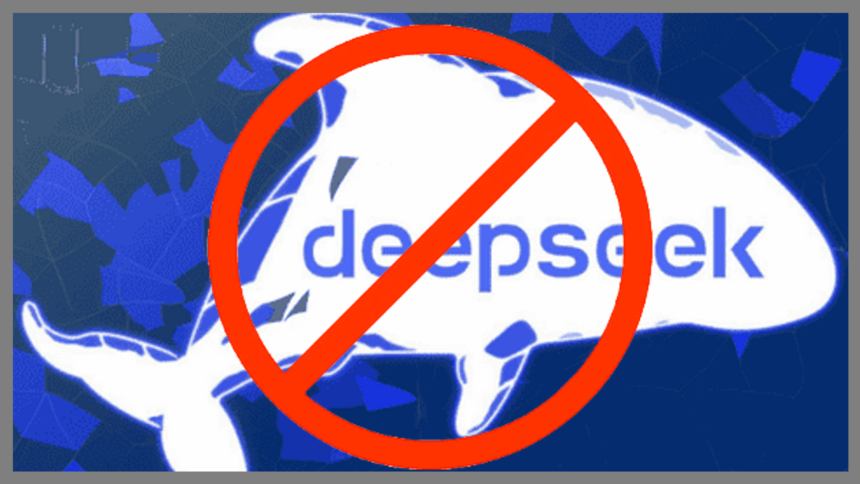China’s AI startup DeepSeek is shaking up the AI chatbot market. Its latest AI model, DeepSeek V3, has rapidly gained traction, surpassing Google’s Gemini and Character.AI in global traffic. While its success is undeniable, governments worldwide raise red flags, leading to restrictions and outright bans due to data security and national intelligence concerns.
What’s Happening & Why This Matters
A Rapid Climb to AI Supremacy
DeepSeek’s meteoric rise has turned it into one of the most talked-about AI models on the market. The platform hit a record 49 million visits in a single day, marking a 614% increase in traffic within just a week. The platform’s rapid growth has even outpaced Google’s Gemini and Character.AI, though it still lags behind OpenAI’s ChatGPT, which maintains 130 to 140 million daily visits.
The factors driving this growth include:
- Open-source accessibility: Unlike many U.S.-based AI models, DeepSeek V3 can be downloaded and run locally, reducing reliance on cloud-based AI services.
- Lower development costs: DeepSeek claims its entire V3 model was trained for just $5.5 million, a fraction of the billions spent on competing models.
- Surging global interest: The AI boom has led businesses, developers, and AI enthusiasts to experiment with DeepSeek, fueling its unprecedented adoption.
Governments Are Pushing Back
Despite its success, DeepSeek’s expansion is running into regulatory roadblocks. Many governments are concerned about data privacy, security risks, and potential AI manipulation. Several have already acted:
- Taiwan: The government banned DeepSeek from all government agencies and critical infrastructure, citing national security concerns and ties to Chinese intelligence.
- United States: With no federal ban, Texas became the first U.S. state to prohibit DeepSeek on government-issued devices, fearing potential data breaches and foreign surveillance. The U.S. Navy and NASA have also forbidden employees from using the chatbot.
- Italy: The country took a bold step by outright blocking DeepSeek nationwide. Italian regulators claim DeepSeek failed to comply with data privacy laws, sparking an official investigation into its data handling practices.
- Belgium, Ireland, France, and South Korea: These nations are currently reviewing DeepSeek’s operations, with the possibility of implementing restrictions if privacy violations are found.
Security Concerns and AI Ethics in Question
Beyond governmental restrictions, DeepSeek has also been criticized by cybersecurity experts and researchers. Tests reveal the chatbot may be highly susceptible to manipulation, raising concerns about misinformation and potential misuse.
- Researchers found that DeepSeek-R1 failed 100% of adversarial security tests, making it completely vulnerable to attacks and misuse.
- Analysts worry that the AI’s ability to generate content without robust safeguards could lead to widespread misinformation and biased responses.
- DeepSeek’s refusal to cooperate with certain data regulators has intensified skepticism among global cybersecurity experts and watchdog organizations.
TF Summary: What’s Next
DeepSeek’s growth is impossible to ignore, but its future depends on how it navigates increasing global scrutiny. With more governments and regulatory bodies questioning its security framework, the AI company may face tighter restrictions and potential bans. Meanwhile, rival AI companies like OpenAI and Google continue to refine their models, ensuring that competition in the chatbot space remains fierce.
— Text-to-Speech (TTS) provided by gspeech


